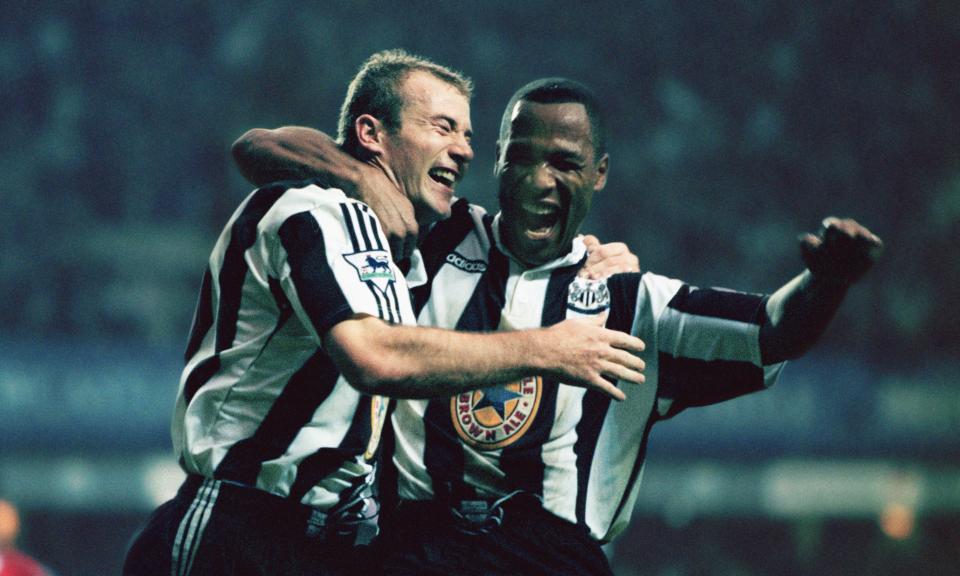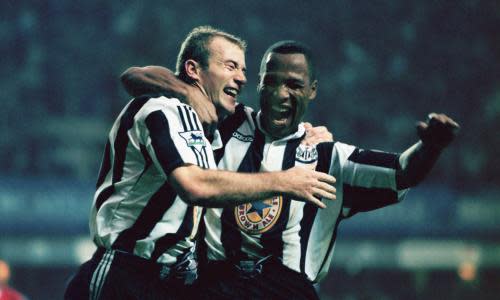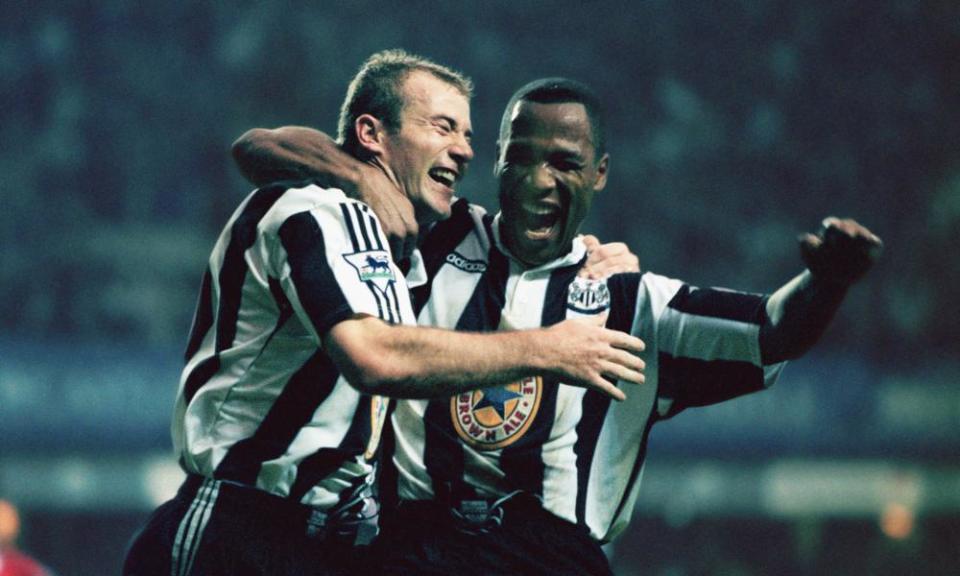Will Newcastle ever truly be set alight under the Mike Ashley regime?
In happier times for Newcastle United, it probably summed up the club’s ambitions that a delegation from St James’ Park once travelled to Turin on the off-chance they might be able to persuade Juventus into selling Roberto Baggio on the spot.
It’s a great story. They didn’t have an appointment. They didn’t have a contact at Juve and when the relevant directors invited Kevin Keegan, Newcastle’s manager at the time, he told them they must be round the twist to think one of the giants of European football would appreciate them turning up without an invitation.
Full marks for trying, though. Those were the days, you see, when Newcastle truly understood what ambition meant. It didn’t get them Baggio and, somehow, I doubt Juve were too impressed by the suggestion they would let a player of that calibre go. Or indeed the follow-up proposal that, if Baggio was not so keen, a deal could be arranged for Dennis Bergkamp instead. But you can’t fault Newcastle for having a go. “I did gently point out that it wasn’t really the way the top clubs conducted transfer business,” Keegan writes in his new autobiography, recalling his conversations with Douglas Hall, the director who came up with the idea. “But I had to admire his nerve, even if it wasn’t necessarily the way I would have gone about it myself.”
READ MORE: Lopetegui confirms Bale, Benzema injuries
READ MORE: Rio Ferdinand rubbishes Jose Mourinho 'manhunt' claims
READ MORE: Huge brawl as Khabib attacks Conor camp after Russian's victory
Keegan, after all, never used to be shy when it came to seeing what adventures were possible, in the days when Newcastle had an entirely different set of priorities to today’s club. Keegan’s philosophy was simple: if there was ever the chance to improve a position in the team, go for the upgrade. Peter Beardsley took over from David Kelly, David Ginola replaced Scott Sellars, David Batty came in for Lee Clark, and on and on.
It took Newcastle from the relegation places of the old Second Division to the verge of a Premier League title and, in the process, they broke the club’s transfer record seven times: Andy Cole, Ruel Fox, Darren Peacock, Warren Barton, Faustino Asprilla, Les Ferdinand, Alan Shearer. Remember that 5-0 win against Manchester United in October 1996? It was Eric Cantona, passing Keegan in one of the corridors afterwards, who neatly epitomised the work at St James’ Park. Six words, and then he was gone. “Fucking good team you have here,” Cantona said.
And now? Does anyone seriously believe Newcastle, still winless after Saturday’s 3-2 ordeal at Manchester United, will truly be set alight under their current regime? What to make of a club that promises to put “every last penny generated” into the transfer market when, back in the real world, Newcastle’s net spend is lower than that of some Championship clubs? When will the generations of supporters who are too young to remember the thrill of a championship chase with Keegan – and we are talking anyone below the age of 30 – see the club emerge from all the stagnation and drift? How much longer must they wait before they have some modern‑day heroes?
One day last week, Keegan was back in the north-east, passing some of the old sights, taking in the memories and not sounding entirely convincing when he tried to argue, more than once, that he was not really one for nostalgia. It was nice, he said, to be home and that night, with a capacity audience waiting for him at the Sage, Gateshead, it was no wonder he puffed out his cheeks and looked a bit emotional. It wasn’t easy to find the words for that moment, though I did like the opening line of the Times’ coverage. “You have never known true love until you have seen Kevin Keegan take to a stage on Tyneside,” it read.
But it was tinged with sadness, too. Keegan’s memories are from a different century now. Or, at least, the happier memories are, before he was coaxed back to St James’ Park in 2008, to be part of the Mike Ashley era, and found out the hard way that what Newcastle tended to say for PR purposes was very different to the sapping reality behind the scenes.
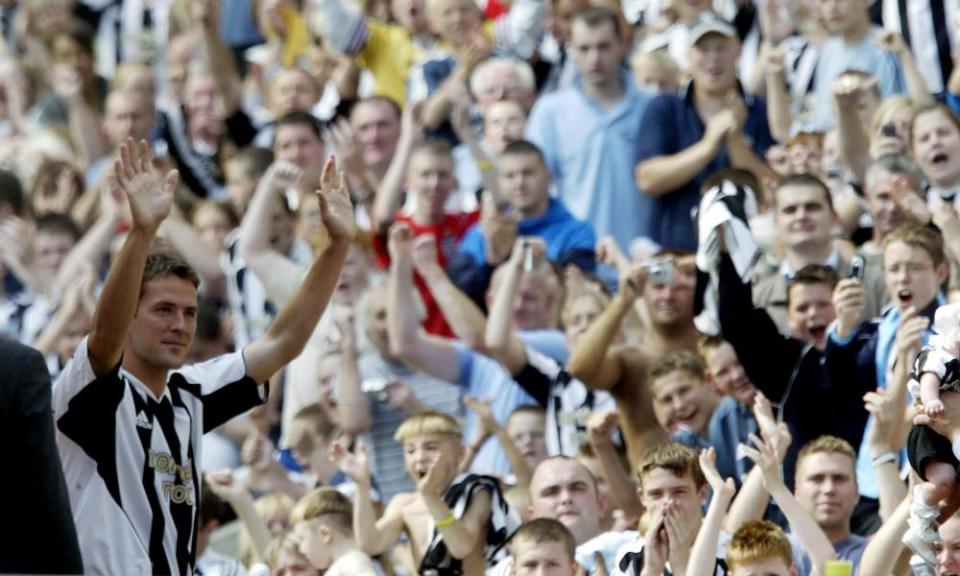
It certainly isn’t easy to understand how Newcastle expect us to believe they have kept up with the changing landscape of football’s finances when it is, in fact, 13 years since the club, under Sir John Hall’s ownership, last broke their transfer record? Graeme Souness was manager at the time. Sven-Göran Eriksson was in charge of the England team, Bolton were competing in the Uefa Cup and Rafael Benítez was a Champions League winner with Liverpool. Jamiroquai was in the charts, Tony Blair was prime minister and Rolf Harris was working on a portrait of the Queen. Michael Owen cost £16m from Real Madrid. It feels a long time ago and £16m these days is what Arsenal paid to sign Sokratis Papastathopoulos in the summer and the valuation Wolves put on Oleksandr Zinchenko, from Manchester City’s reserves.
All of which helps to explain why the more jarring details of the Keegan autobiography, a book I was assigned to ghost-write, is not just a sobering journey into the past for Newcastle’s supporters but a reminder that it is still, for the most part, the same dysfunctional empire. Keegan might tell his stories in the past tense but it is still Ashley’s name above the door. Newcastle still resemble a works side for the boss’s sportswear company. A once-buoyant football club is still being run by unconventional people who don’t seem to appreciate that an elite manager, in an escalating transfer market, might occasionally want to spend some money. Some of the names have changed but the only real difference, as far as I can see, is that St James’ Park is 10 years older, corroding, in obvious need of care.
Ashley now wants us to believe that it is not the case – “inaccurate and irresponsible”, according to a spokesman – that when he encountered some disillusioned Newcastle fans outside a pizza restaurant the other night he went in for the Peter Kay technique of surreptitiously flashing a V-sign with a scratching-the-head disguise.
All that can really be said is he has taken supporters for fools before and it is not easy accepting his version of the truth when the evidence from Keegan’s book makes it clear the Newcastle owner will happily blur the lines between PR and make‑believe, true and false, fact and fantasy.
“I have never looked at the club website and I have to be exceptionally bored to read the programme,” Ashley told the panel at Keegan’s tribunal for constructive dismissal. “You will get more sense out of the Beano.” Yet Ashley was happy to put his name to an article on both platforms stating Keegan had the final say on transfers, knowing that was patently untrue. “Was I conscious that I was involved in a PR exercise?” he said. “Yes.”
Even the smallest details contribute to the bigger picture. Ashley was asked in another interview, ticked off by the club, about his favourite game at Newcastle and picked out a 2-0 win against Sunderland. That turned out to be another PR strategy. The truth, Ashley admitted in his evidence, was that he preferred a 4-1 win against Tottenham, where his mate, Paul Kemsley, had been vice-chairman. “If you want to refer to dealing with the media as lying, then I would say yes, but I don’t think it’s lying in the true sense of the word.”
No harm done, perhaps, in that instance but would you necessarily trust that man? The tribunal found that Keegan was the victim of constructive dismissal and concluded that Newcastle had been guilty of “repeatedly and intentionally misleading the press, public and fans”. Lying, in other words.
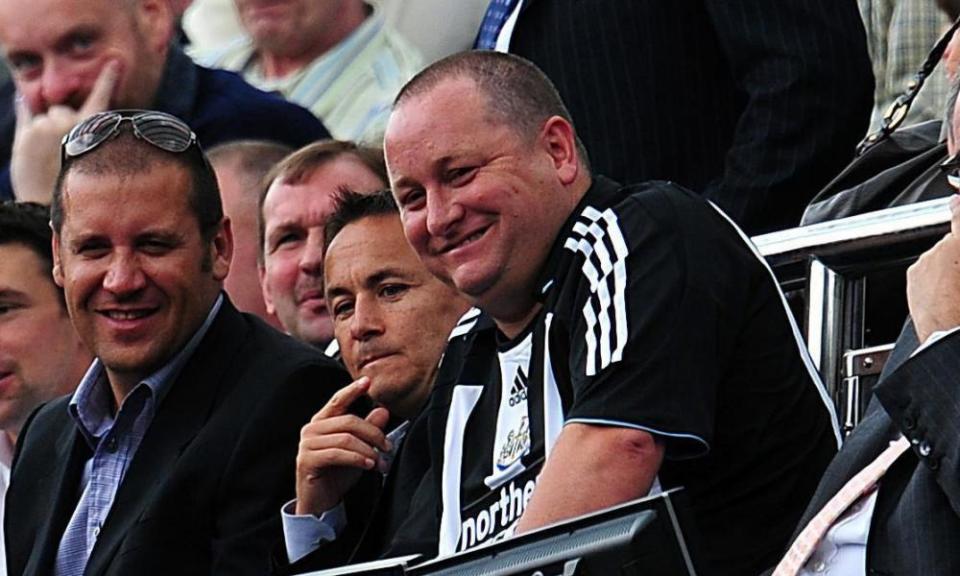
For Newcastle’s sake, it can only be hoped Benítez is not encountering anything like the same kind of provocation that led, in Keegan’s time, to players being signed as a “favour” for agents, the hiring of a transfer executive who had never heard of Per Mertesacker, Luka Modric being “too lightweight” for English football and the tragicomedy of James Milner being sold on the basis that Bastian Schweinsteiger was being lined up from Bayern Munich as the replacement.
Bastian Schweinsteiger? When Keegan rang Karl-Heinz Rummenigge, the Bayern chief executive, to find out if it was a hoax he had to listen to one of the greats of European football roaring down the phone with laughter. Newcastle had, indeed, put in a bid. “Five million euros, Kevin,” Rummenigge explained. “Kevin, what are your people thinking of? We wouldn’t sell Bastian Schweinsteiger for €50m. We killed ourselves laughing.”
Somehow, Keegan can laugh about it too now, 10 years on, but it is a strained kind of humour and I doubt Benítez finds it particularly amusing to learn from one of his predecessors, if he was not already aware, what a hard-faced operation it has become behind the scenes.
The time, for example, Keegan wanted to sign Sami Hyypiä from Liverpool, a player Benítez will know well. Newcastle’s directors arranged a 9pm conference call with Keegan to discuss that one and agreed to put in a £2m offer. Then, once the manager had rung off, another conference call was arranged for 9.30pm, this time without Dennis Wise, Tony Jimenez or any of the others letting him know. On the second call they agreed to make it £1m instead, and keep it from Keegan, almost certainly knowing a bid that derisory would be turned down. When Stoke put in a £2.5m offer Newcastle’s unofficial records – a notebook with “This Belongs to Mr Wise” scrawled in pen on the front and described by a barrister in Keegan’s tribunal as “like a child’s exercise book” – covered that development with the words: “Problem solved.”
The saddest thing, as far as I can see, is that there is no obvious end in sight. Benítez is in the last year of his contract and could surely be forgiven for thinking he could do better elsewhere. The supporters are dreaming of change, as they have been for the last decade, and the years are ticking by. It is a marvellous club, Newcastle, and the bottom line is that they deserve better.
At the Sage last week, a giant banner was unfurled showing Keegan in that iconic black and white strip and emblazoned with one word: “Honesty.” It was taken to the last home game, along with a similar banner for Benítez bearing its own message: “Hope.” The stewards pulled them both down and that, more than anything, probably sums up Newcastle United in the Mike Ashley years. A football club that could do with some honesty and hope.

 Yahoo Sport
Yahoo Sport 





































